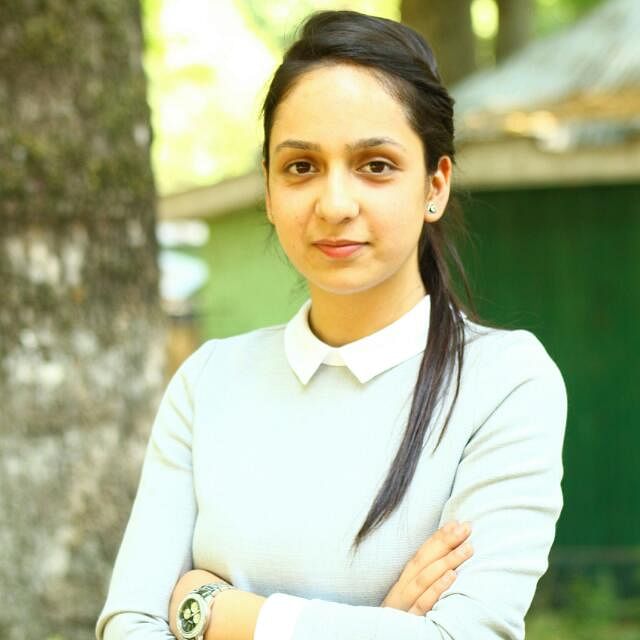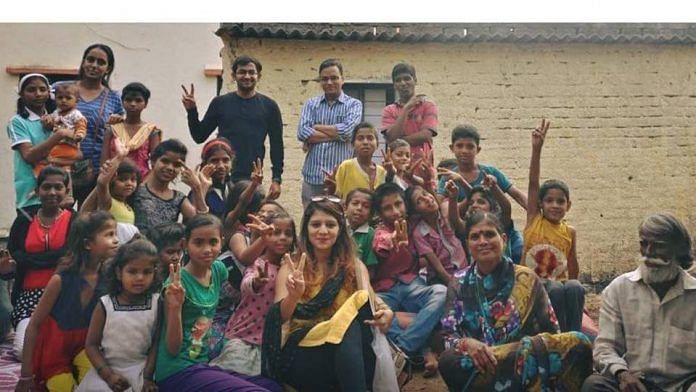Srinagar: Inspired by the incredibly popular Facebook page Humans of New York (HONY), a Srinagar-based psychologist has launched a similar social media initiative for Kashmiris. The goal of ‘Humans of Kashmir‘ is to make the world shed the “stonepelter stereotype” often associated with Kashmiris to see the different stories taking shape in the Valley.
“Why is it that when you think of a 14-year-old Kashmiri boy, you think only of a stonepelter and not of a musician?” asked Fatimah Ali Wani, the 27-year-old founder of the page, in an interview with ThePrint.
“The conflict here exists but so do inspirational stories. Why is it that Kashmir and Kashmiri people are being stereotyped to serve certain narratives? Kashmir is not only one story but a mine of stories,” she added.
Just like HONY, which picks out random New Yorkers to document their story and challenges, be it lost love, single parenthood or bullying, Wani’s page features snippets from the lives of a motley crew as well: A transgender woman, a Kashmiri teenage singer, a basketball player suffering from attention-deficit/hyperactivity disorder, and a local musician whose cover of the Game Of Thrones theme song became a part of the series’ official fan anthem.
Speaking to ThePrint, Wani said these stories “are examples of how people here live life in the harshest of conditions”.
Digging up the stories
Wani is a graduate of Delhi University’s Lady Shri Ram College. After completing her Master’s in psychology from Kashmir University, she enrolled for an MPhil in clinical psychology at the Institute of Mental Health and Neuro Sciences (IMHANS) at the Government Medical College, Srinagar, with a desire to work with locals suffering from mental health issues.
As part of her MPhil curriculum, she is serving a two-year stint as a practising psychologist at Srinagar’s SMHS hospital. According to Wani, who has completed one year of practice, it was nine months into this stint, working nine-hour shifts, that the idea of ‘Humans of Kashmir’ struck her.

She knew at the time that a similar page was operational under the name ‘Humans of Kashmir Stories’, but it wasn’t frequently posting stories
“I had gotten in touch with a Kashmir scholar named Faiq Geelani who had started this page in 2015, but he wasn’t able to give it time as he was pursuing his doctorate abroad,” Wani told ThePrint.
“Two months ago, we discussed the possibility of me taking over the page and doing stories from the ground. Since then, I have documented more than 35 stories,” Wani told ThePrint.
In its previous avatar, the ‘Humans of Kashmir’ page re-shared or re-posted positive stories from the Valley. Wani, however, digs up the stories.
“I return home quite late and then I have to study as I have another year of course work left,” said Wani. “So, all I have is my 80-minute commute, from home to hospital and back. It is during this time that I make calls to people who I can potentially feature on the page.”
Also read: SC allows post-conviction mental illness to be a factor in deciding death penalty appeals
A platform for social issues
Wani is not permitted to speak about her patients, but a lot of them, she said, suffer from issues such as obsessive compulsive disorder (OCD), personality disorder, and post-traumatic stress disorder (PTSD), an ailment quite prevalent in Kashmir, where conflict has been a daily part of civilian life since militancy erupted in the 1980s-1990s.
According to a 2015 report by Médecins Sans Frontières, nearly 18 lakh adults in Kashmir — approximately 45 per cent of its adult population— suffer from some form of mental distress. The majority, the report said, had experienced conflict-related trauma.
“In no way do I want to project these stories to undermine or exaggerate the role conflict plays in the lives of people here,” Wani said of her page. “These stories, some ordinary, some extraordinary, are of people who live here along with the conflict. Their stories inspire,” she added.
Wani, who never makes posts about her patients, is also working with victims of child sexual abuse and custodial torture.
“Some stories are published on mass media. That is not my focus area. I want to bring out stories of how people here have survived the situation here, how they have grown acclimatised to the conflict, their daily struggles, their ordinary stories, basically anything and everything that inspires and teaches others,” said Wani.
The story that she holds closest to her heart is that of Muskaan, a transgender woman who told Wani about the discrimination and abuse she faces on a daily basis.
Wani’s ultimate aim is to convert the page into a platform to work on social issues, especially those about gender.
“Take, for instance, the transgender men and women of Kashmir. How many transgender doctors or teachers do we have at the moment?” Wani said. “Most of them serve as matchmakers or singers at weddings, but it is our responsibility to work for their upliftment.”
Also read: Norms laid down, but little has been done to rehabilitate people cured of mental illness



